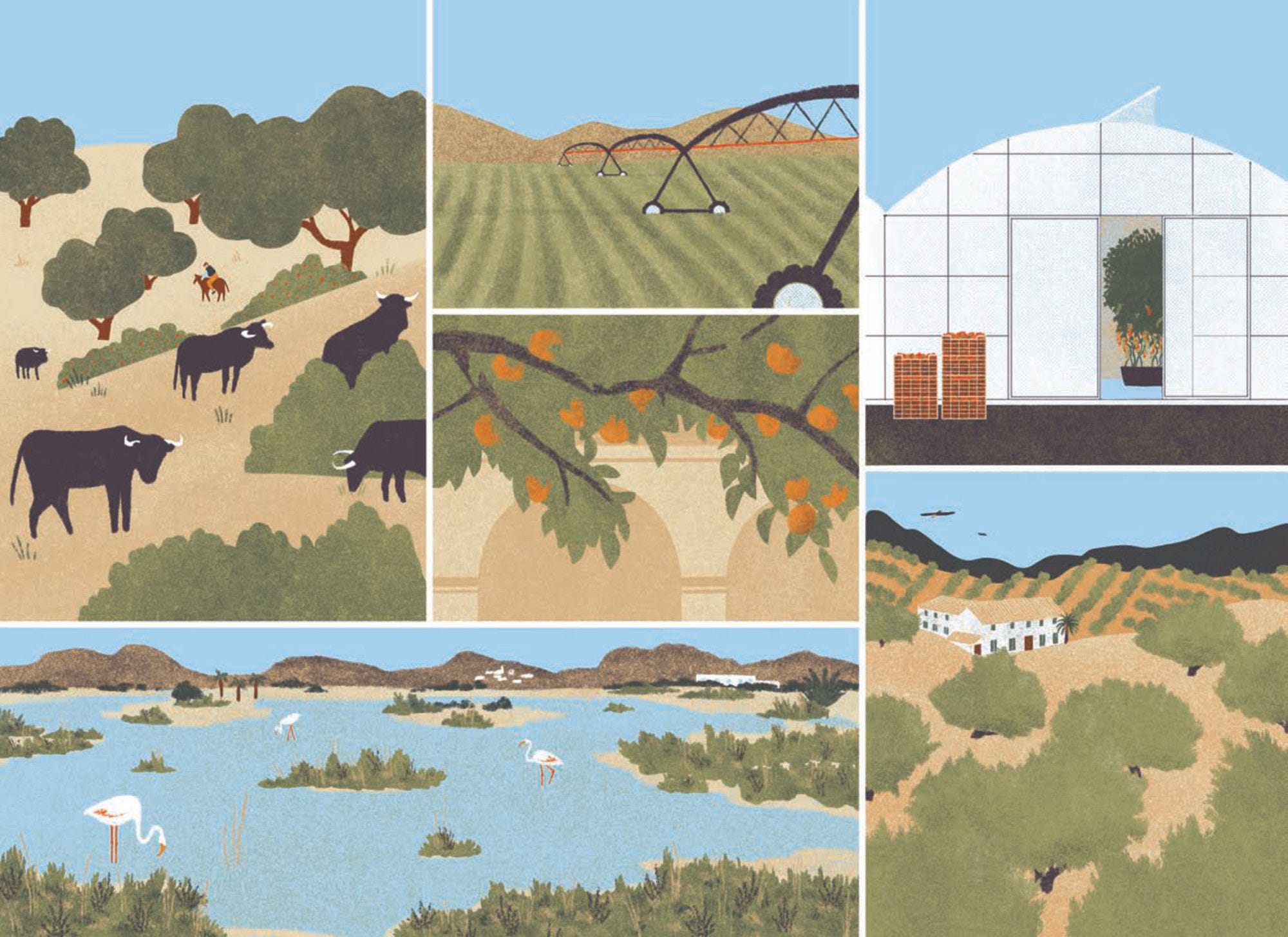Spain is the second-largest country in the European Union (EU), with a climatic diversity that has allowed for the development of a variety of crop and livestock activities in an agricultural area that covers more than half of its territory. The contribution of the agro-food sector to the economy – with 5.2% of total value added – is above the OECD and EU averages.
Agro-food exports represent 18.3% of total exports of goods for Spain, a share higher than for many peer countries. Spain’s agriculture and food industry is productive, competitive, and successful in international markets. Farmers in export-oriented sectors are able to adapt and respond to international trends and demands, both in Spain’s traditional export markets and in emerging new markets. This is evidenced by the growth of several strong export-oriented sectors, including conventional and organic fruit and vegetables, which are mostly sold in the EU market, and pig meat, which is exported mainly to Asian markets.
Agriculture is an important part of the local economy and source of income in many regions of Spain. The development of agricultural production has in many cases driven the development of supporting industries and services, such as processing, distribution and research. Examples include the clusters of supporting industries around organic agriculture and greenhouse horticulture, which are important motors of local growth and employment in some regions.
